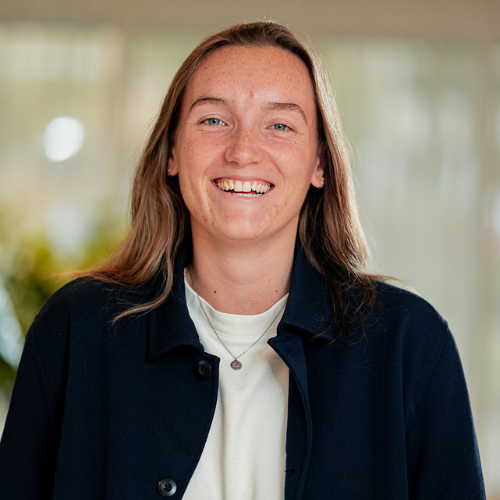In Her Words: Iulia, Software Engineer I at Booking.com
Meet Iulia, Software Engineer I at Booking.com, driving innovation through impactful projects and continuous learning. She highlights how a no-blame, collaborative culture supports her growth. Iulia advocates for diversity by mentoring young talent, promoting fair hiring, and engaging with the tech community to foster inclusion.
.png)
What do you love about your job and your employer?
One of the things I love about my job is the chance to work on innovative and complex projects that make a tangible impact on our customers. However, what excites me the most is that I have the opportunity to constantly learn by interacting with lots of new technologies and face exciting challenges that push me to grow. This eagerness to learn is due to the “no blame” culture and the supportive environment in the company that I deeply appreciate. The collaborative environment here is another great aspect, and, together with the supportive community, it creates a safe space where we can brainstorm and work together to come up with creative solutions.
Have you faced any barriers as a woman in tech, and how did you overcome them?
Yes, I’ve definitely faced barriers, particularly with impostor syndrome. There were times when I doubted my skills and feared that I wasn’t good enough for my job, despite my achievements and the positive feedback I received. Overcoming this has been, and still is, a journey. I’ve found that actively seeking feedback and support from mentors and colleagues has been incredibly helpful. Connecting with other women in tech and sharing experiences has also helped me realise that these feelings are common and manageable. Moreover, embracing continuous learning, and challenging myself by taking on demanding tasks and successfully completing them, has also reinforced my confidence in my own abilities.
How do you advocate for diversity and inclusion within your company or the tech community?
I strive to support diversity and inclusion within my company by participating in programs that nurture young talent, such as the graduate program and networking events with students from various universities, attending conferences like the European Women in Tech to stay engaged with the community, becoming part of the interviewing committee to promote diverse hiring, or simply by doing my best to support and encourage my colleagues.
Can you share a story where you or your employer helped to create a more inclusive environment?
One way I contributed to a more inclusive environment was by joining the recruitment team for our graduate program. I signed up for it after seeing a call for volunteers and underwent training on unbiased evaluation techniques and best practices. I shadowed experienced interviewers and applied what I learned to ensure a fair assessment of all candidates. By focusing on skills rather than background, I helped create a more equitable hiring process that welcomed diverse talent and supported our goal of a more inclusive workplace.
What changes do you hope to see in the tech industry regarding gender equality in the next five years?
It would be great to see the tech industry making significant strides toward gender equality by having continued emphasis on mentorship programs that support women in tech, on closing the gender pay gap, or on ensuring equal opportunities for career advancement. I think this would build a stronger pipeline of female talent for the future, which in turn would lead to a more balanced representation of women in leadership and technical roles.
What needs to happen in the tech industry to contribute to building a more inclusive industry?
I see a lot of initiatives that are currently happening in the tech industry and that deserve to be praised, such as more supportive and diverse work environments, expanding talent pools, an increasing number of networking events and learning opportunities, and increased representation which ensures that various communities are represented in leadership positions and the decision-making process. There is still a lot of room for improvement, but continuing these projects and exploring new ones in the future will bring considerable benefits. For example, implementation of standardised evaluation criteria to reduce bias in hiring, building partnerships with educational institutions, and collecting and analysing data on diversity and inclusion metrics to quantify progress seem to be great ways to continue with the movement.








